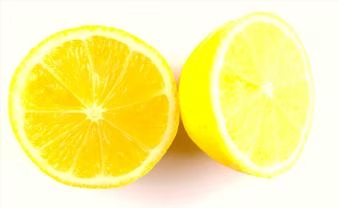Lemon juice is a common ingredient in recipes, with its naturally tart flavor. It not only adds a refreshing flavor to dishes but also helps dough rise when baking. If you don’t have lemon juice readily available, you can substitute the following seven ingredients if you have them.
Vinegar
Whether it’s a general cooking or baking recipe, if a small amount of lemon juice is needed, you can replace it with white vinegar or apple cider vinegar, which also have high acidity, at a 1:1 ratio. However, because vinegar has a stronger flavor and aroma, it’s not recommended if lemon juice is the primary ingredient in a recipe.
Lime Juice
Lime juice, which is very similar to lemon juice in both flavor and tartness, can be substituted directly at a 1:1 ratio. However, if lemon juice plays a significant role in a recipe, the resulting flavor will be slightly different.
Additionally, when making pickles, if the recipe calls for lemon juice instead of vinegar, lime juice can be substituted. However, vinegar is not recommended. Vinegar is less acidic than lemon and lime juice, making the pickle less suitable for long-term storage.
Orange Juice
Oranges, like lemons, are citrus fruits, so orange juice is a good substitute for lemon juice in recipes. This works in almost all recipes, simply swapping orange juice for lemon juice in a 1:1 ratio.
However, orange juice is less acidic and sweeter than lemon juice, so it’s not recommended for recipes that call for large amounts of lemon juice. This can significantly affect the flavor of the finished product and even alter the texture of baked goods. Orange juice is more suitable for replacing smaller amounts of lemon juice.
Citric Acid
Citric acid can be used in foods as a sour additive and is a great substitute for lemon juice in baking. Citric acid is a natural component of citrus fruits like lemons. You can replace 1/2 cup (120ml) of lemon juice with 1 teaspoon (5g) of citric acid.
However, this requires some adjustments to the recipe, as citric acid doesn’t contain as much water as lemon juice, so you’ll need to increase the amount of other liquid ingredients. Furthermore, using citric acid in place of lemon juice in baking protects vitamins and antioxidants that are often lost during cooking.
Lemon Peel
If you freeze or dry your lemon peel, you can grate it before using it in a lemon juice-based baking recipe.
However, because lemon zest, like citric acid, is a solid ingredient, you’ll need to increase the amount of other liquid ingredients when using it in place of lemon juice.
White Wine
If a recipe calls for a small amount of lemon juice, you can substitute white wine at a 1:1 ratio.
Both white wine and lemon juice can be used to collect sauces in cooking. For example, after searing a steak, if there’s some charred residue on the bottom of the pan, add a suitable amount of white wine, red wine, or lemon juice to continue cooking.
Let the residue blend with the liquid and cook until thickened, creating a delicious sauce.
Cream of Tartar
All-purpose cream of tartar, commonly used in baking, is an acidic ingredient. If a baked dish only requires a small amount of lemon juice, you can use cream of tartar in its place.
For every teaspoon of lemon juice, you can replace it with 1/2 teaspoon of cream of tartar, but you’ll also need to slightly increase the amount of other liquid ingredients.


Leave a Reply